
Ashley Yeager is the associate news editor at Science News. Previously, she worked at The Scientist, where she was an associate editor for nearly three years. She has also worked as a freelance editor and writer, and as a writer at the Simons Foundation, Duke University and the W.M. Keck Observatory. She was the web producer for Science News from 2013 to 2015, and was an intern at the magazine in the summer of 2008. She holds a bachelor’s degree in journalism from the University of Tennessee, Knoxville, and a master’s degree in science writing from MIT. Her book, Bright Galaxies, Dark Matter and Beyond, on the life of astronomer Vera Rubin, will be published by MIT Press in August.

Trustworthy journalism comes at a price.
Scientists and journalists share a core belief in questioning, observing and verifying to reach the truth. Science News reports on crucial research and discovery across science disciplines. We need your financial support to make it happen – every contribution makes a difference.
All Stories by Ashley Yeager
-
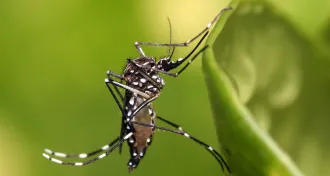 Life
LifeTargeting single set of nerve cells may block mosquitoes
The insects use the same neurons to detect carbon dioxide from our breath and odors from our skin so blocking those cells could lead to more simplified repellent systems.
-
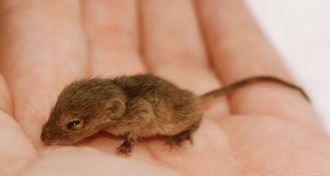 Neuroscience
NeuroscienceExcess activity shrinks blood vessels in baby mouse brains
Newborn mouse pups experience permanent brain changes when repeatedly overstimulated.
-
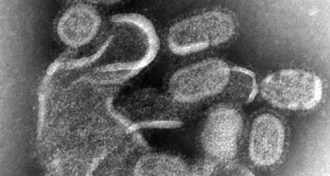 Health & Medicine
Health & MedicineForecasting system predicts peaks in flu outbreaks
A real-time forecasting system has accurately predicted the peak flu cases up to nine weeks before the outbreak.
-
 Planetary Science
Planetary ScienceChina’s first moon-landing mission blasts off
If successful, the Chang’e 3 lunar lander and Yutu rover will be the first spacecraft to land on the moon in 37 years.
-
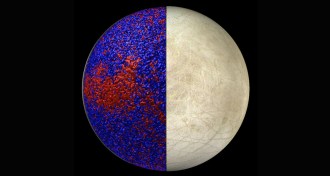 Planetary Science
Planetary ScienceTurbulent ocean could explain Europa’s chaotic ice
New computer simulations show turbulent global ocean currents that distribute heat unevenly and could explain the formation of the chaotic ice patterns at the moon’s lower latitudes.
-
 Psychology
PsychologyGut reaction could foretell marriage satisfaction
Unconscious gut reactions may predict happy, and not-so-happy, marriages, a new study suggests.
-
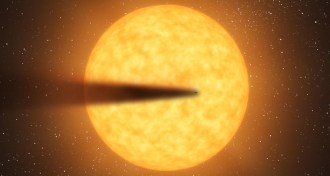 Astronomy
AstronomyDust cloud, tail could explain exoplanet’s odd light pattern
KIC 12557548 b may be ejecting dust from its surface, creating a cometlike tail behind it and an opaque envelope of material around it.
-
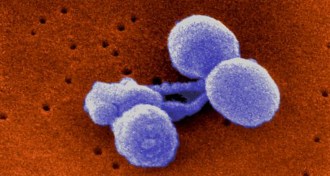 Health & Medicine
Health & MedicineChilling body doesn’t stop bacterial infection
Lowering the body temperature of individuals with severe bacterial meningitis may not help to improve patients’ health and could do more harm than good.
-
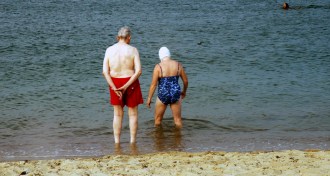 Health & Medicine
Health & MedicineStarting exercise late in life still helps with aging
Becoming and staying active as an older individual can lead to a more years without long-term health conditions.
-
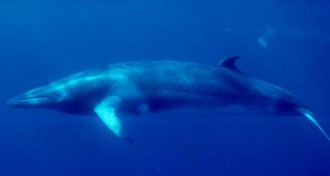 Genetics
GeneticsDNA changes may show how whales adapted to water
Comparing the genetic material of whales has revealed DNA changes that may have helped the animals adapt to aquatic environments.
-
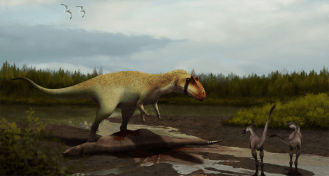 Paleontology
PaleontologyNew dinosaur species joins ranks of giant carnivores
The newly named Siats meekerorum probably roamed what is now Utah about 98 million years ago terrorizing the ancestors of T. rex.
-
 Humans
HumansBabies may have basic body perception at birth
Newborns may enter the world with the basic systems to distinguish their bodies from those of other people.